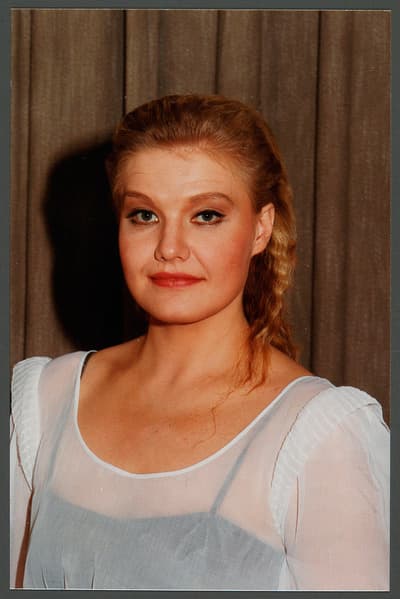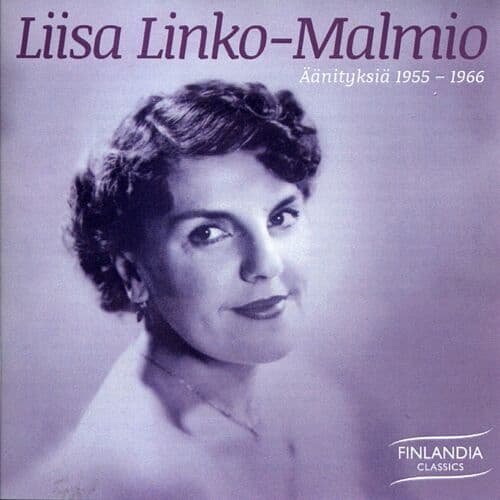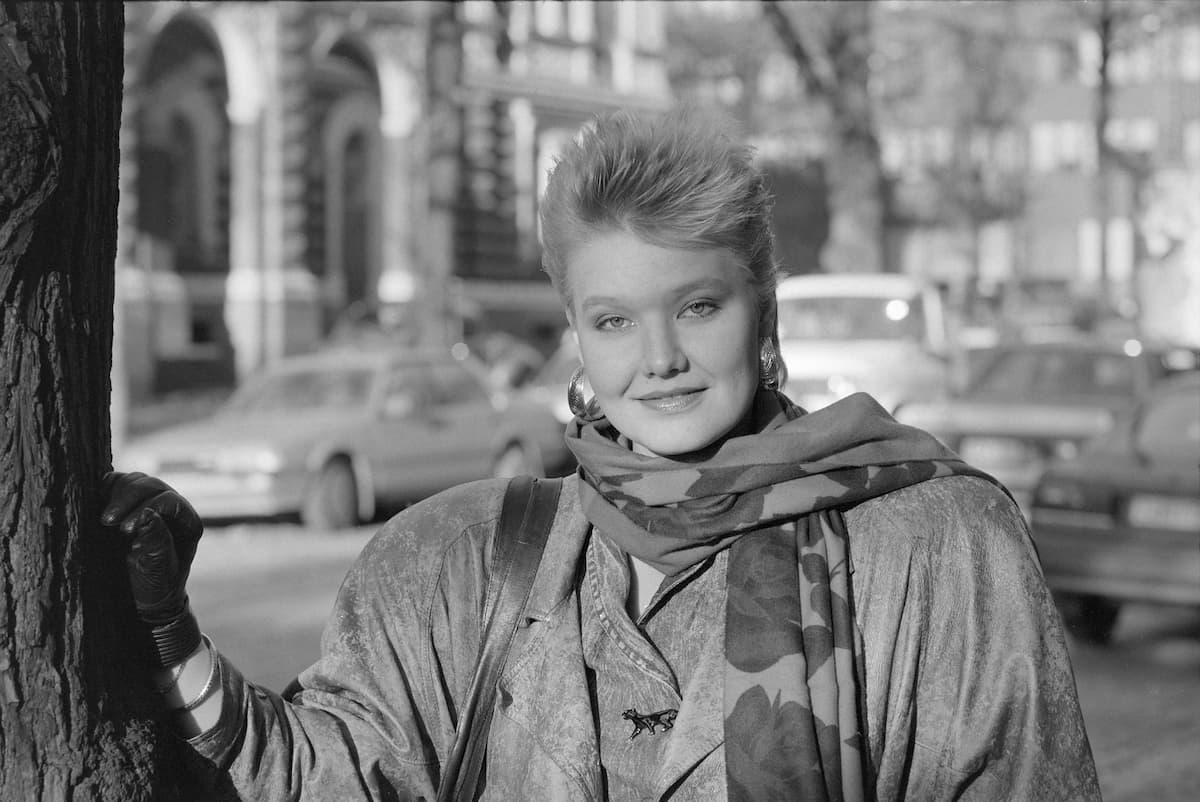Born in Somero, Finland, on 5 September 1960, Karita Mattila can turn any performance into an event. She is one of opera’s most compelling actors, combining conscious artistry with a “truly physical and vocal performance.” In fact, she has been called “the voice of female sexuality” after a 1995 Salzburg performance as Elektra’s younger sister Chrysothemis under Claudio Abbado.
Karita Mattila Sings Strauss’ Salome (excerpt)
Liisa Linko-Malmio

Karita Mattila, 1990
Mattila grew up in a remote village in rural Finland, but her obvious vocal talent secured a place at the Sibelius Academy in Helsinki. Actually, she never had plans to become an opera singer, “it just happened, and now I haven’t regretted anything that has happened. It’s been wonderful.” As Mattila explained, “in the beginning, I was just interested in singing.”
Mattila took lessons with Liisa Linko-Malmio in Helsinki, whom she describes as just wonderful. “She didn’t only teach me singing, but she was also able to teach me so much about this profession. So, it became more real and realistic.” In turn Linko-Malmio remembers, “She was eighteen years old, a great big girl… She was always interested in everything around her. She had a very good voice, as a young girl can have, but not a lot of personality.”
Jean Sibelius: 5 Songs, Op. 37 (Karita Mattila, soprano; Ilmo Ranta, piano)
Vera Rózsa

Liisa Linko-Malmio
At the Sibelius Academy, Mattila loved to work with actors, “exploring the ideas of Stanislavsky and Peter Brook. We tried all kinds of things in rehearsal that had nothing to do with our singing lessons. The more time passes, the more grateful I am.” Mattila graduated in 1983, the same year she won the first “Cardiff Singer of the World Competition.”
Mattila continued her studies in London with the Hungarian singer Vera Rózsa. As a teacher, Rózsa always stressed artistry and interpretation rather than vocal pyrotechnics. She was noted for refusing to impose her own style or technique on her students but insisted on helping them develop their own musical style. Rózsa was, in no uncertain terms, a defining influence for Mattila.
Karita Mattila Sings Poulenc’s La voix humaine (excerpt)
International Début

Karita Mattila in recital
Mozart dominated the early part of Mattila’s career. She made her international début in 1984 as Mozart’s Countess Almaviva with the Finnish National Opera in Brussels. She sang Dona Elvira for her British and American débuts, both in 1985, and over the next few years, she added Fiordiligi, Pamina and Ilia.
For Mattila, “the secret of singing Mozart is the simplicity or the purest of using the voice that you have. It takes many years to learn that, yet we always start with Mozart. The more I sing Mozart, the more I understand how to sing it, and every time I do a Mozart role, I always discover something new in my singing, in my own voice in the technical sense. I also discover new colours in the voice.”
Karita Mattila Sings Mozart’s Don Giovanni, “Or sai chi l’onore”
Expanding Repertoire

Karita Mattila, 1988
Reflecting the increasing weight and richness of her voice, Mattila began to broaden her repertoire in the early 1990s by including the roles of Agathe, Eva, Chrysothemis, and Elsa. Her Italian roles have included Musetta, Manon Lescaut, Amelia Boccanegra, and Elisabeth in Don Carlos, which she has recorded on disc and video.
Her radiant voice and striking stage presence have served her well in Slavonic music as she took on the roles of Tatyana, Lisa, and Jenůfa. Her interpretation of Salome at the Metropolitan in 2004 has been described as “a sensation, both vocally and dramatically.” Mattila has continued to grow, and “as a person, a woman, a human being, my love for the theatre comes from curiosity, a continuing force that drives me.”
For more of the best in classical music, sign up for our E-Newsletter
